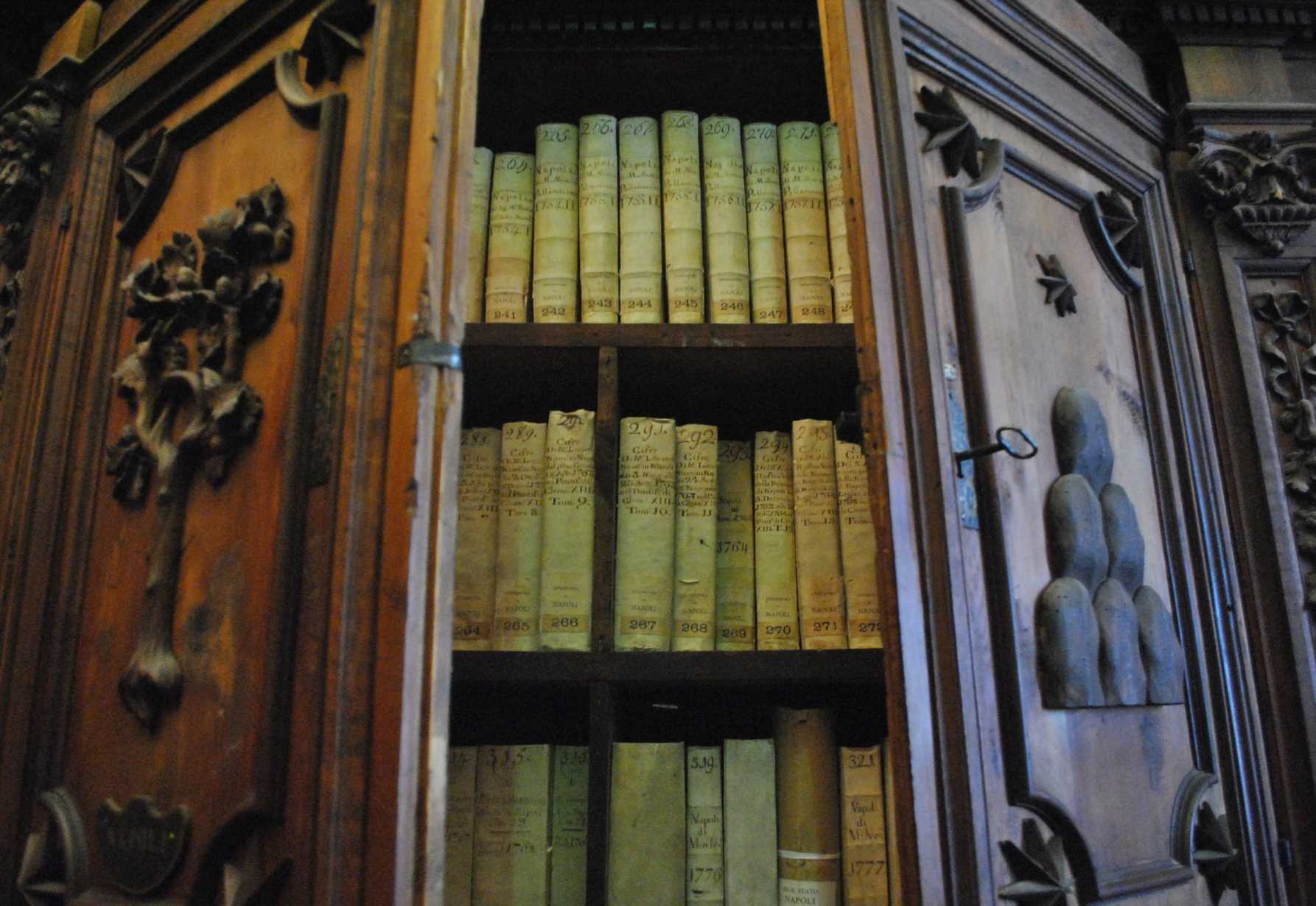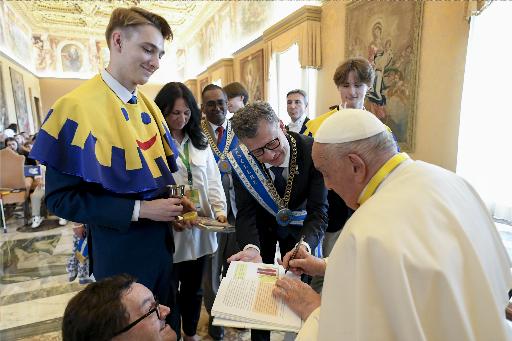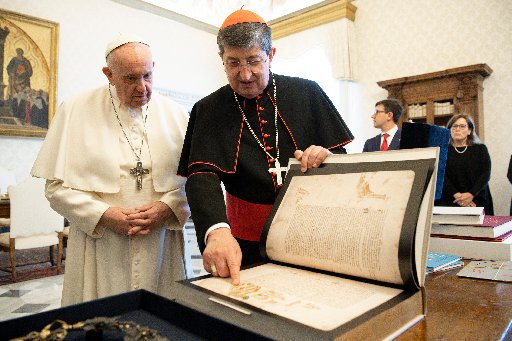Stop and read: Pope praises spiritual value of literature and poetry
Anyone preparing for ministry should spend time with the Bible, prayer books and theology tomes of course, but Pope Francis insists that reading literature and poetry also are essential for spiritual maturity.
 Cindy Wooden
Cindy Wooden

Old volumes are pictured in a wooden cabinet in the Vatican Apostolic Archives in an undated file photo. (CNS photo/courtesy Vatican Apostolic Archives)
VATICAN CITY (CNS) -- Every Christian, but especially seminarians, should set aside their screens regularly and spend time with a book of literature or poetry, Pope Francis said.
In a world that so often prizes efficiency and accomplishment, "we desperately need to counterbalance this inevitable temptation to a frenetic and uncritical lifestyle by stepping back, slowing down, taking time to look and listen," the pope wrote. "This can happen when a person simply stops to read a book."
In a letter "On the Role of Literature in Formation," published by the Vatican Aug. 4, Pope Francis said he initially intended to write a letter on how important it is for seminarians to devote time to reading novels and poetry but decided to expand it because reading is important for "the formation of all those engaged in pastoral work, indeed of all Christians."
The pope's letter cited his own experience as a high school literature teacher in 1964-65 as well as essays by the writers C.S. Lewis, Marcel Proust and Jorge Luis Borges and texts by Jesuit Father Karl Rahner, St. Paul VI, St. John Paul II and the Second Vatican Council. He also referred to evidence in the Acts of the Apostles that St. Paul knew the work of the poet Epimenides, who wrote in the sixth century B.C.E., and the poet Aratus of Soli from the third century B.C.E.
Reading, the pope said, is a healthy form of relaxation, an important way to increase one's vocabulary and an essential exercise in learning to listen to the experiences of other people and other cultures.

"Often during periods of boredom on holiday, in the heat and quiet of some deserted neighborhood, finding a good book to read can provide an oasis that keeps us from other choices that are less wholesome," the pope said. "Likewise, in moments of weariness, anger, disappointment or failure, when prayer itself does not help us find inner serenity, a good book can help us weather the storm until we find peace of mind."
Pope Francis insisted reading "is not something completely outdated" and is an antidote to "our present unremitting exposure to social media, mobile phones and other devices."
"I very much appreciate the fact that at least some seminaries have reacted to the obsession with 'screens' and with toxic, superficial and violent fake news by devoting time and attention to literature," he wrote. "They have done this by setting aside time for tranquil reading and for discussing books, new and old, that continue to have much to say to us."
However, the pope said, even in those seminaries, literature is often seen merely as a form of healthy entertainment rather than as a subject that is important in their training.
A lack of literature and poetry, he said, "can lead to the serious intellectual and spiritual impoverishment of future priests, who will be deprived of that privileged access which literature grants to the very heart of human culture and, more specifically, to the heart of every individual."
Literature, he said, is "listening to another person's voice."

Especially for those preparing for the priesthood, learning to listen to others, particularly those who challenge one's point of view, is a necessary skill, the pope said. Without it, "we immediately fall into self-isolation; we enter into a kind of 'spiritual deafness,' which has a negative effect on our relationship with ourselves and our relationship with God, no matter how much theology or psychology we may have studied."
Literature and poetry, like other arts, also help hone a reader's ability to be in awe -- of others, of the world and, ultimately, of God, the pope said.
Literature, he said, "teaches us how to look and see, to discern and explore the reality of individuals and situations as a mystery charged with a surplus of meaning that can only be partially understood through categories, explanatory schemes, linear dynamics of causes and effects, means and ends."
Learning that lesson is essential for effective evangelization, which is not first about proclaiming and explaining church doctrines but about helping people "encounter Jesus Christ made flesh, made man, made history," the pope wrote.
"We must always take care never to lose sight of the 'flesh' of Jesus Christ: that flesh made of passions, emotions and feelings, words that challenge and console, hands that touch and heal, looks that liberate and encourage, flesh made of hospitality, forgiveness, indignation, courage, fearlessness; in a word, love," Pope Francis said.



